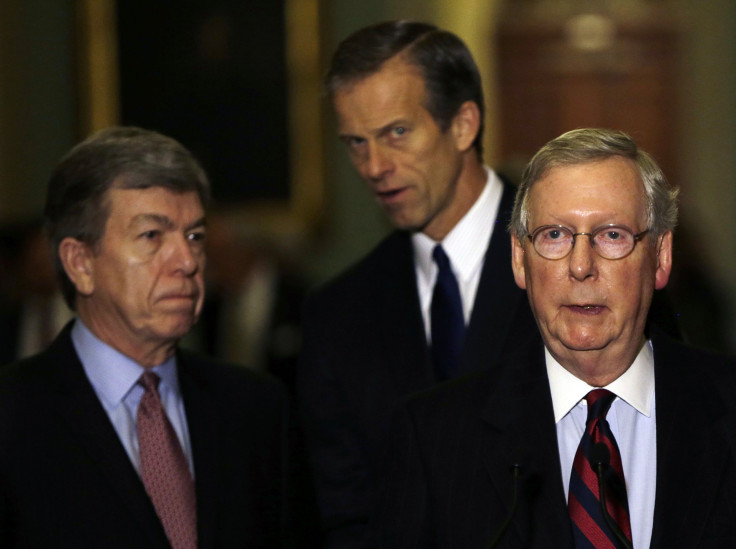Congress Spending Bill: Seven Numbers To Know In The 'Cromnibus'

WASHINGTON -- On Tuesday night, Congress filed a spending bill that could avoid a shutdown and keep the U.S. federal government funded through September 2015. The bill lays out in detail all of the spending priorities.
The bill has been dubbed the "cromnibus" because it combines a long-term omnibus bill with a short-term continuing resolution or "CR." The bill is the product of months of negotiations between Republicans and Democrats. It's expected to quickly pass through both the House and the Senate. The deadline for passage is Thursday at midnight.
Packed into the bill are line items for everything from national parks to the IRS. Here are seven numbers to know:
$1.1 trillion — The sum total of the bill is $1.1 trillion. This will keep almost all of the arms of the federal government operating through September 2015. It keeps spending flat from last year.
The total spending approved in the bill is in line with numbers that were negotiated by Republicans and Democrats to end the government shutdown in 2013. That deal expires next year, when both sides will have to renegotiate how much to fund the government moving forward.
1,603 — The entire bill is 1,603 pages long. Congress had a little more than 48 hours to pass it in both chambers from the moment it was filed on Tuesday night. If it took one minute to read each page, it would take more than 26 hours to read the entire document.
$64 billion — The Defense Department is getting $64 billion for its Overseas Contingency Fund, which includes money for the fight against the Islamic State in Syria and Iraq.
The administration is getting $5 billion for anti-ISIS efforts, which include $1.6 billion for training opposition forces in Syria. The bill sets aside an additional $500 million to be used to equip Syrian rebels who have been vetted. It also gives $4.1 billion to help security forces in Afghanistan, and $250 million to pay for the disposal of unexploded ordnance on U.S. bases in Afghanistan.
The remainder of the $64 billion goes to various overseas initiatives, like $1.3 billion for counter terrorism programs in places like Libya, Yemen and Somalia. There is $810 million for European programs, of which at least $175 million must be spent helping Ukraine and other Baltic nations.
$30.3 billion — The omnibus bill includes $30.3 billion for the National Institutes of Health, an agency that often attracts political attention over funding fights. That includes $238 million extra in fund research to find a cure for Ebola.
Elsewhere in the bill, $112 million is appropriated to help fight Ebola in West Africa. The White House had requested the additional funding to work to end the epidemic where it started.
$80 million — The omnibus bill included only an $80 million increase in funding to address the issue of unaccompanied minors who immigrated in droves across the southern border last year. It’s far less than the $3.7 billion Obama had requested in July.
That’s because the small increase came only in the Health and Human Services Budget. Those funds can be used to treat the children, but not address the overarching problem.
The rest of the money that Obama requested was in the Department of Homeland Security, and the DHS budget is frozen. Congress approved their spending only until February 2015, to set up a later fight over the president’s immigration executive orders. Because their budget is short term, Congress couldn’t increase spending levels.
Eight – The “Affordable Care Act” appears only eight times in the legislation. Most of the references are in regards to how the health care law is funded.
However, none of the references call for removal of funding of the bill. In 2013, the federal government came to a halt when Congress pushed to stop implementation of the law by defunding it through a similar appropriations process. That didn't happen this time.
28 – The word “abortion” appears in the spending bill 28 times. Each time is another affirmation by Congress that no government funding should be used to pay for, encourage or require coverage of an abortion.
“None of the funds appropriated under this Act shall be expended for any abortion except where the life of the mother would be endangered if the fetus were carried to term or where the pregnancy is the result of an act of rape or incest,” the bill reads.
© Copyright IBTimes 2024. All rights reserved.






















